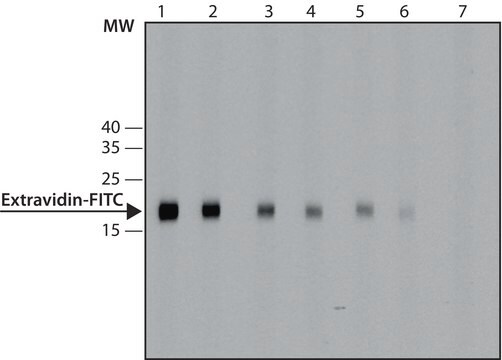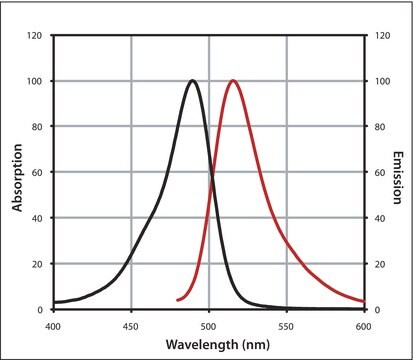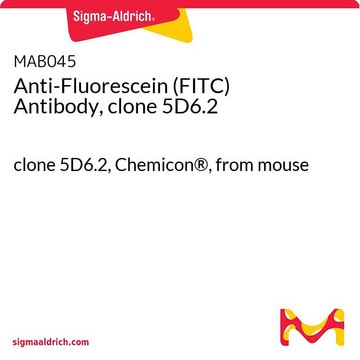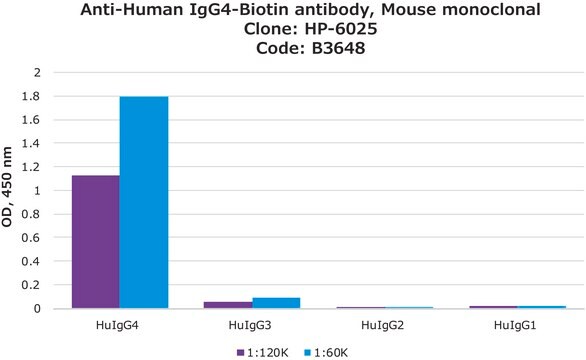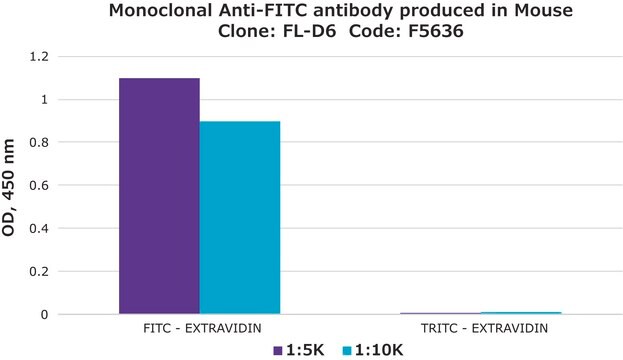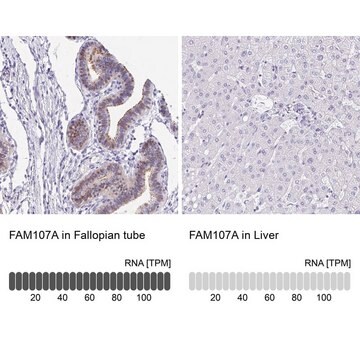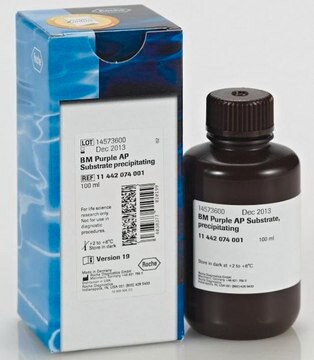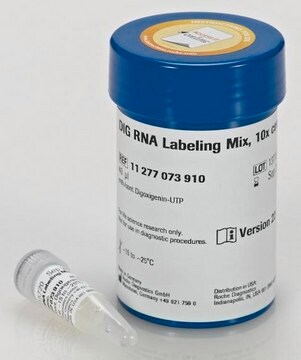11426338910
Roche
Anti-Fluorescein-AP, Fab fragments
from sheep
Sinônimo(s):
antibody
Faça loginpara ver os preços organizacionais e de contrato
About This Item
Código UNSPSC:
12352203
Produtos recomendados
fonte biológica
sheep
Nível de qualidade
conjugado
alkaline phosphatase conjugate
forma do anticorpo
affinity purified immunoglobulin
tipo de produto de anticorpo
primary antibodies
clone
polyclonal
Formulário
solution
embalagem
pkg of 150 U (200 μl)
fabricante/nome comercial
Roche
Isotipo
IgG
temperatura de armazenamento
2-8°C
Categorias relacionadas
Descrição geral
Fluorescein is synthesized from m-dialkylaminophenols or resorcinols condensed with phthalic anhydrides under harsh conditions. Fab fragments bind to G proteins.
This gene encodes a member of the SOX (SRY-related HMG-box) family of transcription factors involved in the regulation of embryonic development and in the determination of the cell fate. The encoded protein may act as a transcriptional activator after forming a protein complex with other proteins. This protein acts as a nucleocytoplasmic shuttle protein and is important for neural crest and peripheral nervous system development. Mutations in this gene are associated with Waardenburg-Shah and Waardenburg-Hirschsprung disease. (provided by Ref Seq)
Especificidade
The polyclonal antibody reacts with free and bound fluorescein.
Aplicação
Use Anti-Fluorescein-AP, Fab fragments for the detection of fluorescein-labeled compounds using:
- Dot blot
- ELISA
- Immunohistocytochemistry
- In situ hybridization
- Southern blot
- Western blot
- Electrochemical biosensing technique for the detection of 16S rRNA
Ações bioquímicas/fisiológicas
Anti-Fluorescein-AP, Fab fragments has been used in oligonucleotide capture, denaturation and detection (CDD).
Características e benefícios
Contents
Solution, stabilized
Solution, stabilized
Nota de preparo
- Working concentration: The following concentrations depend on application and substrate and should be taken as a guideline. Dot blot: 150mU/ml
- ELISA: 150 to 300mU/ml
- Immunohistocytochemistry: 250 to 500mU/ml
- In situ hybridization: 1.5 to 7.5U/ml
- Southern blot: 150mU/ml
- Western blot: 250 to 500 mU/ml
Working solution: 100mM Tris-HCl, 150mM NaCl, pH 7.5. If necessary 1% Blocking reagent (w/v), dry milk powder, 1 to 5% heat inactivated fetal calf serum (v/v) or sheep normal serum can be used for reduction of unspecific binding.
Outras notas
For life science research only. Not for use in diagnostic procedures.
Não está encontrando o produto certo?
Experimente o nosso Ferramenta de seleção de produtos.
Palavra indicadora
Warning
Frases de perigo
Declarações de precaução
Classificações de perigo
Skin Sens. 1
Classe de risco de água (WGK)
WGK 1
Ponto de fulgor (°F)
No data available
Ponto de fulgor (°C)
No data available
Escolha uma das versões mais recentes:
Já possui este produto?
Encontre a documentação dos produtos que você adquiriu recentemente na biblioteca de documentos.
Os clientes também visualizaram
Applications And Engineering Of Monoclonal Antibodies (1998)
Simplified Paper Format for Detecting HIV Drug Resistance in Clinical Specimens by Oligonucleotide Ligation
Panpradist N, et al.
PLoS ONE (2016)
Nadia A Fernández-Santos et al.
PLoS neglected tropical diseases, 14(1), e0008008-e0008008 (2020-01-31)
All formerly endemic communities of the Southern Chiapas focus of onchocerciasis in Mexico were treated with ivermectin until parasite transmission was eliminated by 2015. Transmission of onchocerciasis did not resume during a period of three years (2012-2014) following the final
Fluorescent indicators for cytosolic calcium based on rhodamine and fluorescein chromophores
Minta A, et al.
The Journal of Biological Chemistry, 264(14), 8171-8178 (1989)
Mohammad Goudarzi et al.
Developmental cell, 43(5), 577-587 (2017-11-28)
Cell migration is essential for morphogenesis, organ formation, and homeostasis, with relevance for clinical conditions. The migration of primordial germ cells (PGCs) is a useful model for studying this process in the context of the developing embryo. Zebrafish PGC migration
Nossa equipe de cientistas tem experiência em todas as áreas de pesquisa, incluindo Life Sciences, ciência de materiais, síntese química, cromatografia, química analítica e muitas outras.
Entre em contato com a assistência técnica

